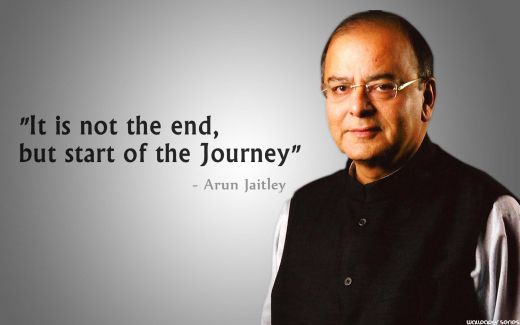India's Economy is Third Largest in the World
Daljit Sehbai
It is now official that India is the third largest economy in the world behind USA, the largest, and China in the second place. This is based on Purchasing Power Parity according to World Bank's international comparison figures.
On this basis of comparison, India is now ahead of Japan, which has slipped into 4th place. Germany is in the 5th place and Russia is 6th. On the basis of same comparison, UK is in the 9th place according to World Bank figures released at the end of April 2014.
United States' share of World GDP is way ahead at 17.1, China is at 14.9, India is 6.4 and Japan is at 4.8. UK, with a share of 2.4, is in the 9th place on the basis of Purchasing Power Parity Index. PPP index is worked out on the basis of what money can buy with the country's currency whose GDP ranking is assessed.
There has been a significant change in economic performance during the last 10 years. In 2005, India's economy was only 10th in the world but it increased to being third, while Japan and UK economies contracted during this period and became smaller relative to the United States. The three Asian economies of China, India, and Indonesia nearly doubled in the same period. Russia, Brazil and Mexico also showed an increase of nearly one-third.

In a recent press interview, Arun Jaitley, India’s Finance Minister, said that the country’s economic growth would have been faster if government had not been obstructed by the unnecessary hurdles placed on passing the legislation in Rajya Sabha, the second chamber of parliament, where Congress and its allies still have a majority. Some of these measures are essential to promote faster economic growth. Opposition has to change their attitude and not thwart the will of Lok Sabha, the lower house, that was directly elected by the people of India who gave Narinder Modi’s government a massive majority in May 2014. Some of the shackles restricting growth of business need to be removed to achieve economic prosperity at a much faster rate.
In the early 1990’s, when Congress leader Narasimha Rao became prime minister, he appointed the economist, Dr Manmohan Singh, as his Finance Minister. It was his reforms to change the direction of India’s economy that made India emerge from the Nehru rate of growth experienced for more than 40 years since independence. Unfortunately, Dr Manmohan Singh when he became prime minister a decade later, could not do much to carry on his good work started when he was Finance Minister. As Prime Minister, he had position without power or authority that remained with the Congress President and the Gandhi family. In addition to this, as prime minister he had compulsions of coalition as he had to rely on a motley group of Left parties to get a majority in parliament for any measures he wanted to propose.
Narinder Modi’s election as prime minister with a massive majority in 2014 gives India and Indians hope that measures will now be taken to make businesses grow that will accelerate the country’s economic growth and bring prosperity to the millions of Indians who have voted for a change of direction.
|
